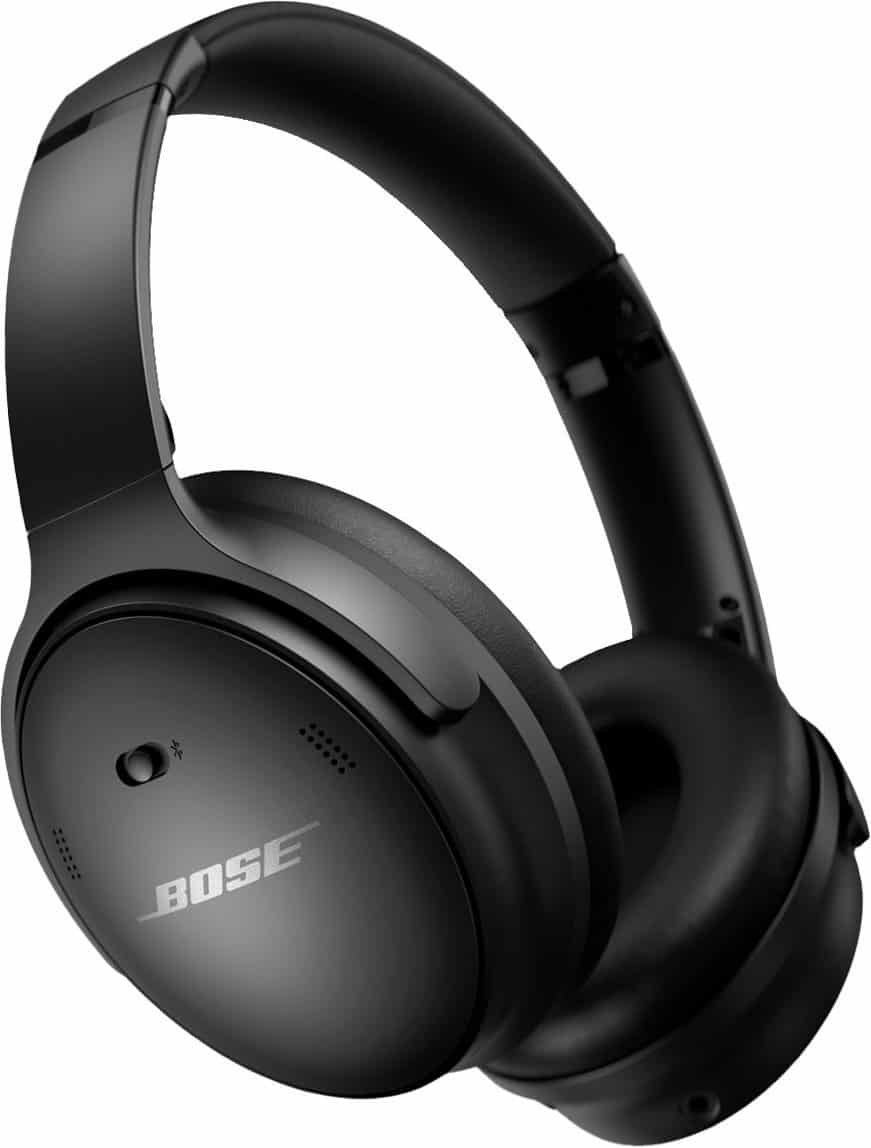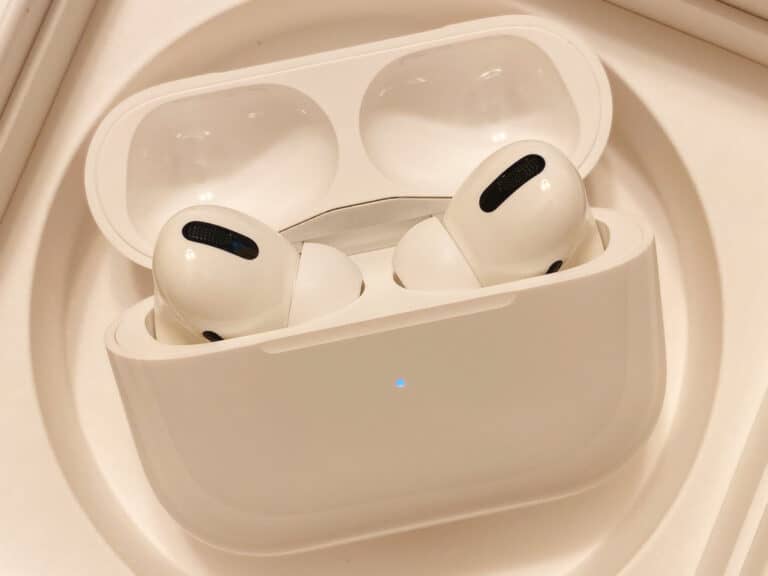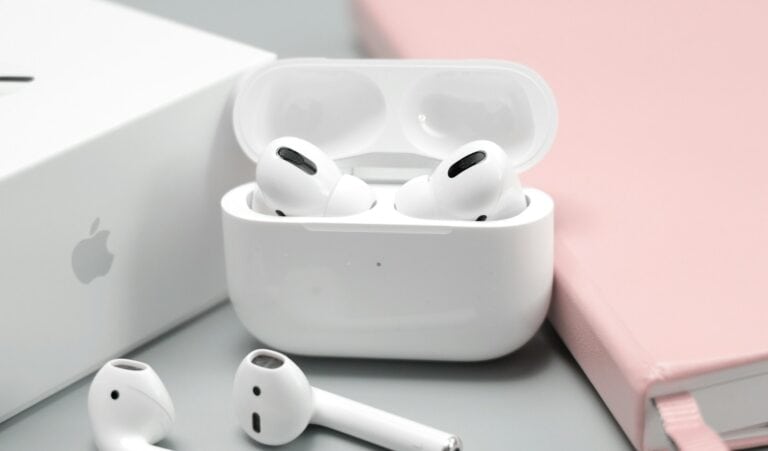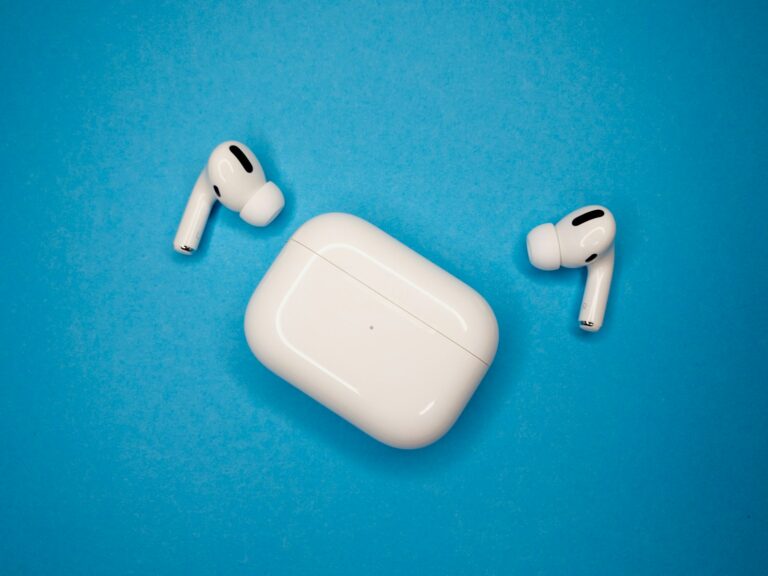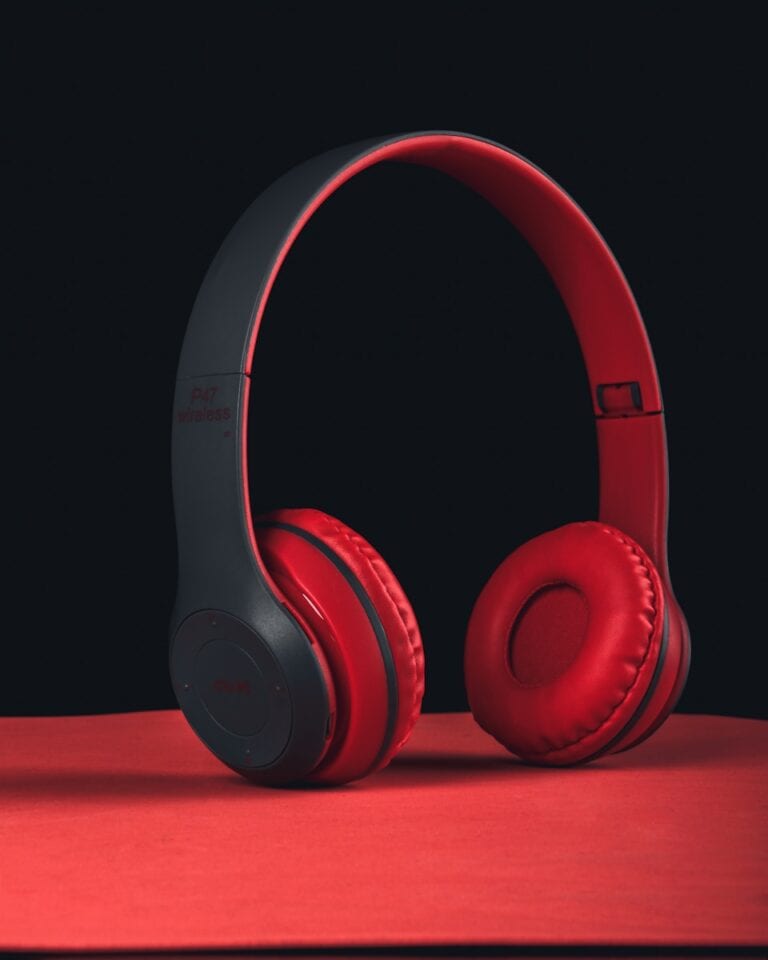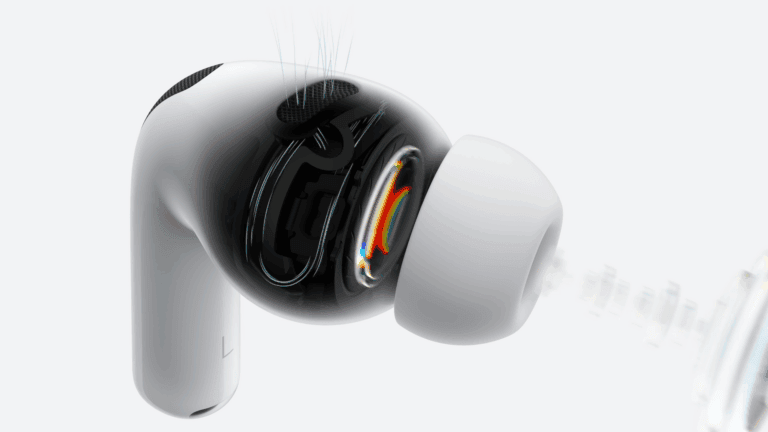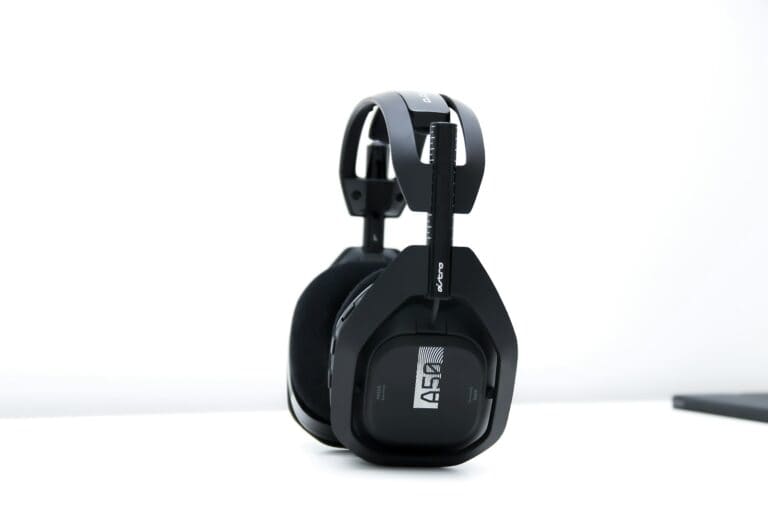Noise cancelling headphones are generally considered safe for sleeping, but whether or not they’re OK for your situation will depend on your personal preferences and needs. If you find them comfortable and they help you sleep better, then go for it! If you find them uncomfortable, then don’t use them. Be sure to read the tips and advice below to ensure a safe and comfortable experience.
Are Noise-Cancelling Headphones OK for Sleeping?
In short: Yes, you can sleep with noise-cancelling headphones, but there are some important comfort and safety factors to consider.
According to experts and sleep health resources, sleeping with noise-cancelling headphones isn’t inherently dangerous, but prolonged or improper use can lead to ear discomfort, hygiene issues, or even minor health risks (Headphone Infatuation; Cleveland Clinic).
✅ Benefits of Sleeping With Noise-Cancelling Headphones
- Blocks Ambient Noise:
Active noise cancellation (ANC) reduces background sounds like snoring, traffic, or neighbors — helping light sleepers rest better. - Promotes Relaxation:
You can pair ANC with calming sounds or white noise to improve sleep onset and quality. - Alternative to Earplugs:
For those who dislike earplugs, over-ear or on-ear noise-cancelling headphones can be a comfortable alternative (Soundproof Central).
⚠️ Risks and Drawbacks
- Discomfort (especially for side sleepers):
Most headphones are bulky and can press against your ears or head, causing soreness overnight. - Ear Health Concerns:
Wearing headphones for long periods can trap moisture and heat, leading to earwax buildup or ear infections (Headphone Infatuation). - Potential Safety Risks:
- You may not hear alarms, smoke detectors, or emergencies.
- Wired headphones pose a tangling hazard during sleep.
- Overheating or battery issues (rare) can occur with wireless models.
- Pressure Sensation:
Some users feel mild ear pressure from ANC technology, which can be uncomfortable during long use.
💡 Tips for Safe and Comfortable Use
- Choose sleep-friendly models: Look for lightweight, low-profile, or headband-style sleep headphones (Sleep Foundation).
- Keep volume low: Avoid high volumes to prevent hearing damage.
- Clean regularly: Wipe ear cups or buds to prevent bacteria buildup.
- Limit use: Try using them only when needed — for instance, in noisy environments or during travel.
- Use a sleep timer: Set your device to stop playing after you fall asleep.
💤 Alternatives for Better Sleep
- Sleep headbands with flat speakers (e.g., AcousticSheep SleepPhones)
- White noise machines or apps
- Foam or silicone earplugs (if tolerated)
- Soundproofing your room
🧠 Bottom Line
Sleeping with noise-cancelling headphones is generally safe if you’re comfortable and practice good ear hygiene. However, for nightly use, it’s best to choose devices designed specifically for sleep or explore non-headphone noise solutions.
Sleep Soundly with Noise Cancelling Headphones?
Noise-canceling headphones are great for blocking out distractions, but are they good for sleep? Yes and no. It depends on a few things.
Why Noise-Canceling Headphones Could Help You Sleep
Blocking out noise: That’s their main job! They can muffle snoring partners, noisy neighbors, or traffic sounds. This can make it easier to fall asleep and stay asleep.
Creating a calm environment: Some headphones offer relaxing sounds or white noise, which can further improve sleep quality.
Why Noise-Canceling Headphones Might Not Be Ideal for Sleep
Comfort: Over-ear headphones can be bulky and uncomfortable to sleep in. Earbuds might be a better option, but even those can cause discomfort for some.
Safety: It’s important to be aware of your surroundings, especially in case of emergencies. Noise-canceling headphones can block out important sounds like alarms or smoke detectors.
Tips for Using Noise-Canceling Headphones for Sleep
If you want to try sleeping with noise-canceling headphones, here are a few tips:
- Choose comfortable headphones: Look for lightweight, over-ear headphones or earbuds designed for sleep.
- Use a timer: Set a timer for the headphones to turn off automatically after you fall asleep.
- Consider the volume: Keep the volume low to protect your hearing.
- Talk to your doctor: If you have any concerns about using headphones for sleep, talk to your doctor.
Popular Noise-Canceling Headphones for Sleep
Here’s a quick comparison of some popular options:
| Headphones | Type | Features | Pros | Cons |
|---|---|---|---|---|
| Bose Sleepbuds II | Earbuds | Designed for sleep, relaxing sounds, noise masking | Comfortable, effective noise masking | No active noise cancellation, expensive |
| Sony WH-1000XM4 | Over-ear | Active noise cancellation, high-quality sound, comfortable | Excellent noise cancellation, great sound | Bulky for sleeping |
| Apple AirPods Pro | Earbuds | Active noise cancellation, transparency mode, comfortable | Good noise cancellation, compact | Might not be comfortable for everyone to sleep in |
Understanding Noise Cancelling Headphones
Choosing the right sleep headphones means understanding how noise cancellation works and what benefits each type brings to the table.
Key Features of Active Noise Cancellation
Active noise cancellation (ANC) utilizes microphones and speakers within the headphones. The technology detects external sounds and emits sound waves that are the exact opposite, called “anti-noise,” to cancel out ambient noises. Headphones with ANC are built to filter out unwanted sounds like traffic or a snoring partner, contributing to a more restful sleep environment.
Benefits of Passive Noise Cancellation
Passive noise cancellation involves no electronics. Instead, it relies on the design of the headphones and the materials used to physically block noise from entering the ear. Memory foam or silicone ear tips create a seal that minimizes sound penetration. While less high-tech, passive noise isolation can be highly effective, especially for low-frequency noises, and doesn’t require power to operate.
Types of Sleep Headphones
Sleep headphones come in various styles:
- Over-Ear Headphones: These have cushioned ear cups that encase the ears and usually offer both active and passive cancellation.
- In-Ear Earbuds: Compact and less bulky, they fit directly into the ear canal and provide noise isolation.
- Sleep Masks with Built-In Headphones: These combine an eye mask with integrated audio for a two-in-one sleep aid.
Each style caters to different preferences regarding comfort and the level of noise cancellation needed.
Evolution of Noise-Cancelling Technology
Noise-cancelling technology for sleep has evolved significantly over the years. The latest models, such as QuietOn earbuds or the Bose Sleepbuds II, incorporate advanced sound-canceling algorithms and are specially tailored for overnight use. Lightweight designs, improved battery life, and specialized features like soothing sounds have set a new standard for what users can expect from sleep headphones.
Selecting Comfortable Sleep Headphones
When it comes to finding the right headphones for sleeping, comfort is key, especially for side sleepers who may find traditional models too bulky or rigid for a good night’s rest.
Comfort Factors for Side Sleepers
Side sleepers need headphones that won’t press hard against the ear and head. Over-ear models are often too large, potentially causing discomfort. A slim, low-profile design with soft, cushioned ear pads offers better comfort. Look for headbands with integrated headphones, which provide a snug yet gentle fit.
Headphones Vs. Earbuds: Sleep Comfort
On-ear headphones can be too firm and might slip off during sleep, while in-ear earbuds with memory foam tips can fit snugly without causing pressure. The choice between headphones and earbuds often boils down to personal preference, though earbuds are less likely to move out of place for those who toss and turn.
Materials and Design
The materials used in making headphones can greatly impact comfort. Options with a lightweight build, such as those made of stainless steel or durable plastics, are preferable. For the ear cushions, memory foam covered with soft fabric like velour can enhance overall comfort during prolonged use.
Adjustability and Fit
A comfortable fit is essential for sleep headphones. Look for models with adjustable headbands or earbuds that come in multiple sizes to ensure a proper fit. Designs that use flexible materials can conform better to various head shapes, helping to keep the headphones in place all night.
Bedtime Audio Experience
For a restful night, high-quality audio and the right sound profile are key. Headphones for sleeping should provide clear sounds and a seamless wireless experience.
Achieving Optimal Audio Quality
When it comes to sleeping, the audio quality of headphones matters. One needs clear and consistent sound, free from disruptions. High-resolution audio with a wide frequency range can ensure even subtle tones of white noise or nature sounds are delivered precisely. For example, products like the Bose QuietComfort Earbuds II offer advanced noise-canceling capabilities, ensuring that background noise doesn’t interfere with your rest.
Exploring Sound Profiles for Sleep
Different people relax to different sounds. Sleep headphones should come with an audio library, complete with sounds like soothing ocean waves or gentle lullabies. It’s not just about silence but about creating an audio environment that can lull a listener to sleep. The Kokoon headphones, renowned for sleep support, might offer a variety of relaxing sounds to help users drift off.
Wireless Convenience and Sound Control
The best sleep headphones ditch the cords for a wireless experience. Bluetooth connectivity allows users to pair their sleep headphones with a device without the hassle of cables. A simple control panel either on the headphones or through an app should let one adjust the volume or choose their sound profile without much fuss. To top it off, wireless earbuds like the Apple AirPods Pro 2 cater to a user’s needs with minimal noise leakage, maintaining a quiet environment for sleep.
Practical Considerations
When choosing noise cancelling headphones for sleeping, certain features can make or break your experience. Let’s explore the practical aspects that matter.
Battery Life and Charging Options
Battery life is crucial since you don’t want your headphones dying in the middle of the night. Look for models boasting at least a 10-hour battery life to ensure you get through the night. Many come with a charging case, which can extend total battery life and provide multiple recharges. Some even offer wireless charging, adding convenience.
Headphone Versatility and Use Cases
Versatility matters. The best headphones for sleep aren’t just for night use; they can play an integral part in your daily life. Some headphones feature an innovative design that’s suited for a range of activities from sleeping to taking calls to listening to music during your commute.
Durability of Sleep Headphones
Durability is key for sleep headphones, as they’re often used in various sleep positions. A robust build will ensure that they withstand movement throughout the night without breaking down.
Sleep Headphone Models and Brands
In the quest for a good night’s sleep, various headphone models and brands have made their mark with features catered to the sleep-conscious consumer.
Premium and Budget-Friendly Options
For those seeking luxury, Bose QuietComfort Earbuds II and Sony WH-1000XM4 or the newer WH-1000XM5 are popular premium choices. Meanwhile, budget-conscious shoppers might consider the Perytong Sleep Headphones or CozyPhones, which offer comfort and noise-cancellation at a more affordable price point.
Premium Options:
- Bose QuietComfort Earbuds II
- Sony WH-1000XM4
- Sony WH-1000XM5
Budget-Friendly Options:
- Perytong Sleep Headphones
- CozyPhones
Features of Top Brands and Models
The top models, like the Apple AirPods Pro 2 and Sony WF-1000XM4, stand out with their exceptional sound quality and advanced noise-cancelling technologies. Sleep-oriented headphones such as the AcousticSheep SleepPhones or Sleep Mask Headbands feature designs that blend comfort with audio quality, making them a go-to choice for side sleepers and for those who find traditional earbuds uncomfortable.
Apple AirPods Pro 2 & Sony WF-1000XM4:
- Superior sound quality
- Leading noise-cancellation
AcousticSheep SleepPhones & Sleep Mask Headbands:
- Comfort-driven design
- Good audio performance
Other notable mentions include the QuietOn 3.1 Sleep Earbuds which are exquisitely crafted for sleep with a focus on noise-cancelling capability. Hoomband and Kokoon NightBuds have also carved a niche for themselves for being sleep-specific with their headband and in-ear designs respectively. When shopping, consumers can check platforms like Amazon for a wide selection that caters to different needs, whether it’s a pair of the best headphones for sleep or a specific type that one might need to sleep soundly.
Lifestyle and Sleep Patterns
Choosing the right noise-cancelling headphones for sleep hinges on understanding personal sleep habits and surroundings. This choice can impact your nightly rest and how refreshed you feel in the morning.
Selecting Headphones Based on Sleep Position
If you’re a side sleeper, low-profile headphones that lie flat against your ear are essential to avoid discomfort. Back sleepers and stomach sleepers may enjoy more flexibility with headphone choices, but should still look for something that won’t slip off easily during the night. Partners of those who snore might benefit from over-ear noise-cancelling models to block out the sound.
Considering Sleep Environment Noise Levels
The level of noise in your sleeping area, whether it’s traffic noises from a busy street or a partner’s snoring, can significantly affect your headphone selection. For high noise environments, headphones with active noise cancellation are the best choice to keep out the ruckus.
Managing Hot Sleeping Conditions
Hot sleepers should opt for headphones with breathable materials to prevent overheating. Some headphones designed specifically for sleep also include features like moisture-wicking fabric, ensuring a cooler experience throughout the night.
Additional Features and Accessories
When picking noise-cancelling headphones for sleeping, it’s not just about how well they block out noise. People should also consider what extra features and accessories come with them to enhance their experience.
Communication Capabilities
Today’s sleeping headphones often include a microphone to make phone calls. Some allow users to access Google Assistant or other voice assistants, making it easier for them to set alarms or get answers without picking up their phone.
Maintenance and Care
Most sleep headphones come with a case for storage, protecting them from dust and damage. For hygiene, some models offer washable earpieces or covers. These parts are commonly made of comfortable, skin-friendly materials like soft plastic.
Customization Options
Headphones for sleeping often feature a variety of colors and designs to suit personal tastes. Additionally, many come with ear tips in three sizes to ensure a snug, comfortable fit. This makes it easier to match individual preferences and sleep styles.
Frequently Asked Questions
When hunting for the perfect pair of noise cancelling headphones to wear to bed, it’s key to consider both comfort and effectiveness. This section answers some common questions to help you choose the right pair.
What are the best noise cancelling headphones for side sleepers?
For side sleepers, headphones that have a low profile and are comfortable to wear all night are crucial. The Moonbow Bedphones Sleep Headphones are often recommended for their compact size and the way they rest on the outside of the ear, making them less intrusive for those sleeping on their side.
Can noise cancelling headphones effectively block out snoring?
Yes, noise cancelling headphones can reduce the sound of snoring. While they may not eliminate it completely, many users find that they significantly lessen the noise, helping to improve sleep quality.
Are there any risks associated with wearing noise cancelling headphones while sleeping?
Wearing headphones during sleep poses minimal risks. However, you should ensure they have a comfortable fit to avoid pressure on the ears or head, and keep the volume at safe levels to prevent potential hearing damage.
What features should be considered when choosing noise cancelling headphones for sleeping without music?
When selecting noise cancelling headphones for sleeping without music, look for ones with effective active noise cancellation (ANC) technology, a comfortable design for long-term wear, and a long-lasting battery if they’re wireless.
How do noise cancelling headphones interact with alarm sounds in the morning?
Most noise cancelling headphones will dampen the sound of an alarm. However, they typically do not block it out entirely, especially if the alarm is set to a high volume. It is something to trial and adjust based on your personal experience.
What are the top-rated noise cancelling earbuds designed specifically for sleep?
The Bose QuietComfort Earbuds II are highly rated for their active noise cancellation properties. Additionally, the Bose Sleepbuds II are designed specifically with sleep in mind and come pre-loaded with sounds to help you drift off without silencing your personal audio.

